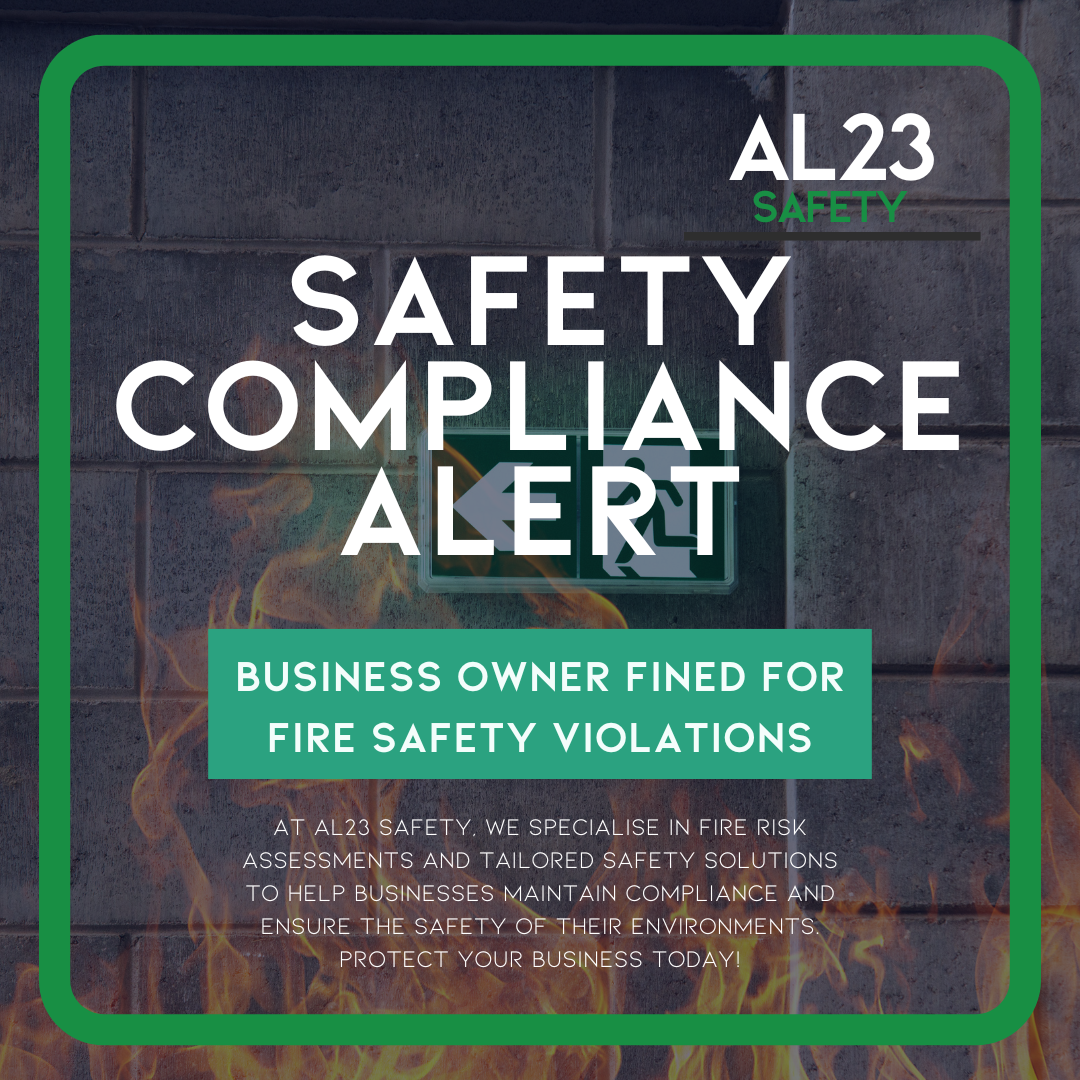Battery storage safety is a top priority as battery energy storage systems (BESS) become integral to the renewable energy landscape. These systems, vital for storing energy from solar and wind sources, are key to achieving net-zero emissions. However, incidents like the 59-hour fire in Liverpool and the evacuation of 1,500 residents in Northern California highlight the fire risks associated with BESS. To help businesses navigate these challenges, this blog outlines seven critical tips to ensure battery storage safety, focusing on fire risk mitigation, compliance, and best practices with support from AL23 Safety.
Understanding Fire Risks in Battery Storage Systems
Battery storage systems face unique fire risks, primarily due to thermal runaway, a process where overheating leads to short circuits and the release of flammable gases. The concentrated storage of battery cells amplifies the risk of fire spread, as seen in incidents like the 24-hour fire at an Essex BESS facility. Beyond operational facilities, recycling and disassembly processes also pose risks if batteries are mishandled. Businesses must conduct thorough fire risk assessments to identify vulnerabilities and implement robust safety measures to prevent catastrophic incidents.
Conducting Comprehensive Fire Risk Assessments
A cornerstone of battery storage safety is a detailed fire risk assessment. This process involves identifying potential hazards, such as thermal runaway triggers, and evaluating the workplace environment, including storage, maintenance, and recycling operations. Regular assessments ensure that risks are proactively managed, aligning with UK regulations like the Regulatory Reform (Fire Safety) Order 2005. AL23 Safety specialises in conducting tailored fire risk assessments, helping businesses pinpoint vulnerabilities and develop effective mitigation strategies.
Implementing Advanced Fire Suppression Systems
Modern fire suppression systems are critical for enhancing battery storage safety. Technologies like gas-based suppression systems or water mist systems can quickly contain fires caused by thermal runaway, minimising damage and preventing escalation. Businesses should invest in systems designed specifically for BESS, ensuring they meet industry standards. Regular maintenance and testing of these systems are equally important to ensure reliability during an emergency.
Training Staff for Battery Storage Safety
Proper training is essential for maintaining battery storage safety. Employees handling BESS must be educated on safe operation, emergency procedures, and the risks of thermal runaway. Training should cover proper battery handling, maintenance protocols, and recycling processes to prevent fire incidents. Ongoing training sessions ensure staff remain up to date on best practices, fostering a safety-first culture. AL23 Safety offers customised training programs to equip your team with the knowledge to operate safely and compliantly.
Ensuring Compliance with UK Regulations
Compliance with UK fire safety regulations is non-negotiable for businesses operating BESS. The absence of harmonised international standards makes it critical to adhere to local guidelines, such as the Regulatory Reform (Fire Safety) Order 2005. This includes maintaining up-to-date fire risk assessments, installing appropriate safety systems, and documenting compliance efforts. AL23 Safety provides expert guidance to ensure your BESS operations meet all regulatory requirements, reducing liability and enhancing workplace safety.
Engaging with Local Communities
Public opposition to BESS facilities, as seen in some UK regions, underscores the need for transparent communication with local communities. Addressing concerns about battery storage safety through community engagement can build trust and support. Businesses should share details of their fire safety protocols, emergency preparedness plans, and commitment to environmental safety. This proactive approach not only mitigates opposition but also demonstrates a commitment to protecting both workers and nearby residents.
Partnering with Experts for Tailored Safety Solutions
Navigating the complexities of battery storage safety requires expertise. Partnering with specialists like AL23 Safety ensures that your business has access to tailored fire safety strategies, from risk assessments to suppression system recommendations. Our team provides ongoing support, helping you stay compliant with regulations and prepared for emergencies. By collaborating with AL23 Safety, you can confidently harness the benefits of BESS while prioritising safety.
Conclusion: Prioritising Battery Storage Safety
As battery energy storage systems become a cornerstone of renewable energy, ensuring battery storage safety is critical to protecting workers, communities, and operations. By conducting thorough risk assessments, implementing advanced fire suppression systems, training staff, ensuring compliance, engaging communities, and partnering with experts, businesses can mitigate fire risks effectively. AL23 Safety is here to support you in developing robust safety protocols tailored to your needs. Visit our services page today to learn how we can help you create a safer, compliant workplace.



